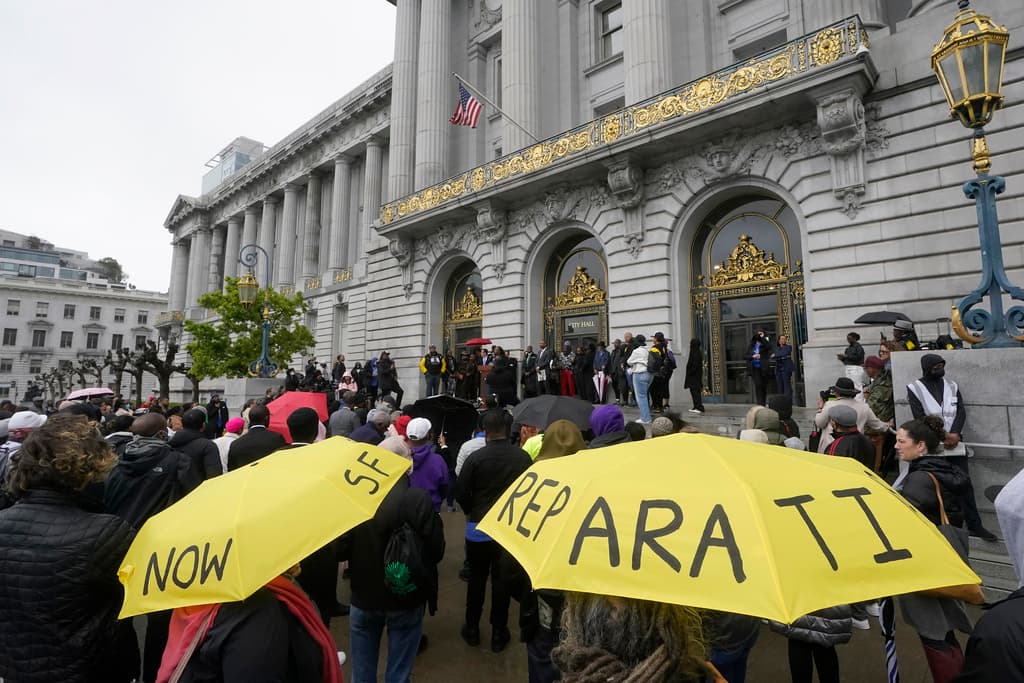San Francisco Approves Fantasy Reparations Plan That Would Pay Black Residents $5 Million, Let Them Buy a House for $1
Black San Franciscans would also be entitled to a lifelong annual salary of at least $97,000 as compensation, won’t have to pay taxes, and will have all their debts forgiven.

San Francisco’s ambitious plan to pay billions of dollars in reparations to its Black Americans is spawning fierce debate about whether the plan, however unrealistic, is the best use of taxpayer dollars.
Please check your email.
A verification code has been sent to
Didn't get a code? Click to resend.
To continue reading, please select:
Enter your email to read for FREE
Get 1 FREE article
Join the Sun for a PENNY A DAY
$0.01/day for 60 days
Cancel anytime
100% ad free experience
Unlimited article and commenting access
Full annual dues ($120) billed after 60 days

